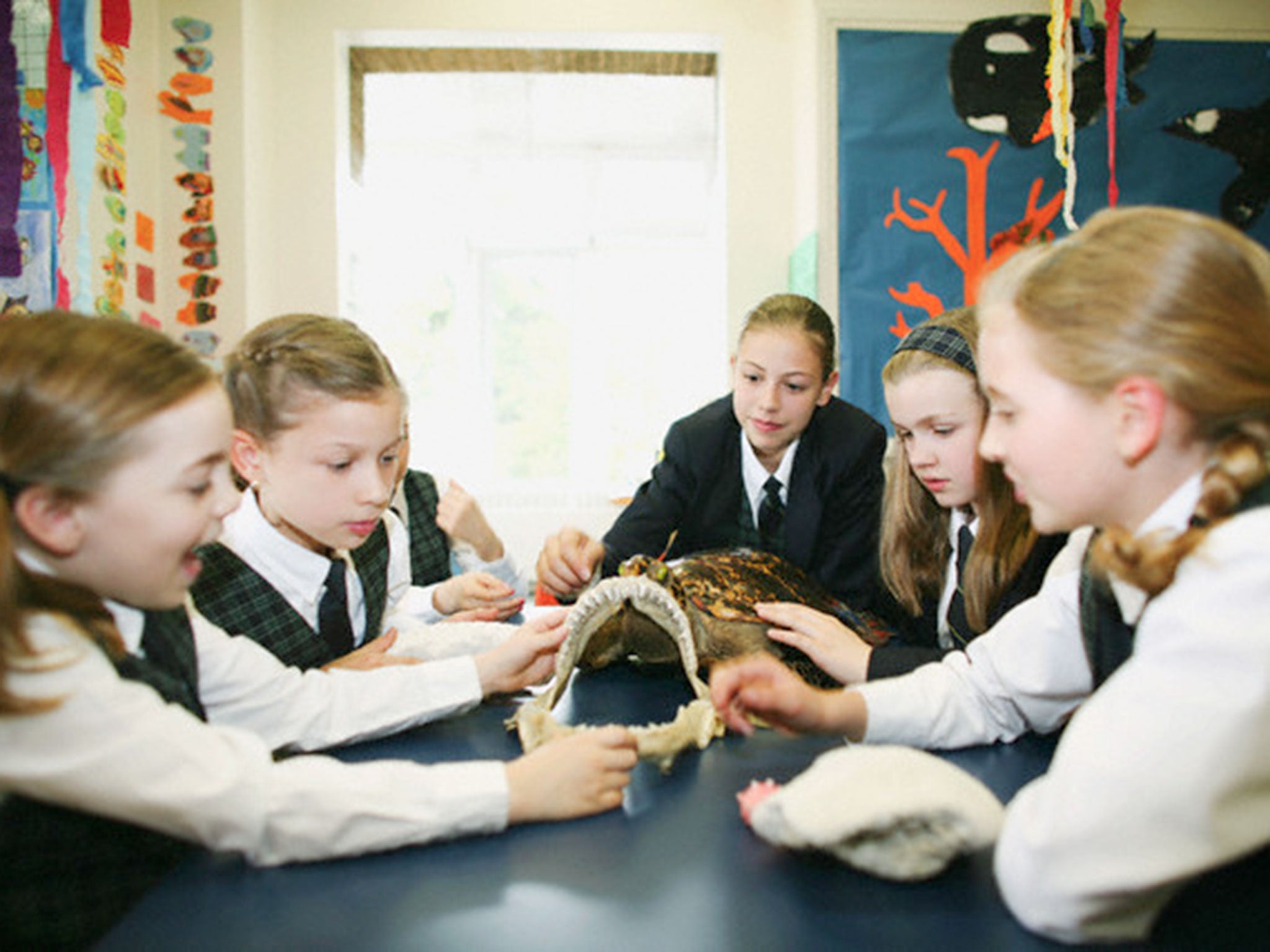Exclusive: Poor white pupils need extra help with English

Your support helps us to tell the story
From reproductive rights to climate change to Big Tech, The Independent is on the ground when the story is developing. Whether it's investigating the financials of Elon Musk's pro-Trump PAC or producing our latest documentary, 'The A Word', which shines a light on the American women fighting for reproductive rights, we know how important it is to parse out the facts from the messaging.
At such a critical moment in US history, we need reporters on the ground. Your donation allows us to keep sending journalists to speak to both sides of the story.
The Independent is trusted by Americans across the entire political spectrum. And unlike many other quality news outlets, we choose not to lock Americans out of our reporting and analysis with paywalls. We believe quality journalism should be available to everyone, paid for by those who can afford it.
Your support makes all the difference.Schoolchildren from white working-class homes should be entitled to the same kind of remedial language support as pupils who have English as a second language, because without extra help they are falling behind their foreign-speaking classmates, research has found.
Some working-class children are arriving at school unable to recognise their own names, and need just as much help to allow them to communicate with their peers, a conference will be told today.
“Members of staff felt that the school grants needed to be rethought as there is currently no money to support the language deficit within the white working-class community,” argues the study by Dr Feyisa Demie, head of research and statistics at Lambeth Council, and Dr Kirstin Lewis, from Goldsmith’s College.
It said school ethnic minority achievement co-ordinators had found many students with English as a second language “are articulate by the time they reach Year 6 [the last year in primary school] due to the level of support they have had”.
“Furthermore, many schools reflected on the fact that pupils with English as an additional language [EAL] needs arriving new to a school receive a thorough induction process,” it added.
But when it came to white working-class pupils, the co-ordinators said their “hands were tied and that, as much as some white working-class pupils needed specific language support to progress and access the curriculum, they were not in a position to give this support”.
One told researchers: “I was with some children the other day in a classroom – it was the EAL children who had the necessary comparative language: bigger, biggest. The white children did not have the vocabulary.”
The report added: “Governors believe the current system of additional funding means some schools serving white working-class estates do not receive adequate financial support... The consequences of an ability to express oneself either verbally or in writing can lead to low self-esteem and often aggression.”
One primary school teacher said: “Many of the white children, as do others, come into school well below average; they haven’t got the skills; they can’t recognise their own name.”
The report is due to be presented at a conference at London University’s Institute for Education today.
It confirmed the findings of a Commons Select Committee on Education report last week in which MPs revealed that white working-class pupils were the poorest performers of any ethnic group in exams and tests.
Professor Alan Smithers, head of the Centre for Education and Employment at Buckingham University, said: “We tend to provide very good tuition for students who come from abroad. There is a whole profession build up around English as a second language, but really English is to some extent a second language to a lot of young people born in this country.
“One of the ways of raising the performance of white working-class pupils is to give them help as if English was a foreign language.”
In contrast to today’s findings, black pupils are now the fastest improving ethnic group after years languishing as the poorest performers as The Independent revealed yesterday.
Dr Tony Sewell, who founded the charity Generating Genius – set up to help disadvantaged black youths but now widened in scope to cover white working-class pupils as well – said: “A child from a West African background that is lower middle-class might better be able to access English than a white working-class boy on an estate.”
Today’s report also concluded that social deprivation and housing conditions play their part in limiting the achievements of white-working class pupils.
“One of the main reasons for pupil underachievement is a perceived lack of aspiration amongst parents for their children’s future and a lack of engagement in their schooling”, it said.
One headteacher told the authors: “Many of our parents are young, with a legacy of hostility to school.”
Another teacher added that white working-class parents did not “possess the immigrant mentality”.
The report concluded that “The main obstacle in raising achievement is the Government’s failure to recognise that this group has particular needs that are not being met by the school system.”
However, the Government argues that – with its “pupil premium” giving schools extra cash to take in disadvantaged pupils – schools now have the wherewithal to deal with underperformance.
Join our commenting forum
Join thought-provoking conversations, follow other Independent readers and see their replies
Comments